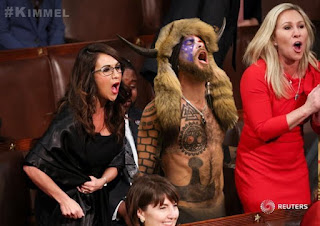Standing before a crowd of 300 Hampton citizens, on two occasions over the past two years, I have seen the eyes of at least 200 citizens in that crowd, on each occasion, staring back at me blankly, as I urged them to embrace the separation of church and state.
These occasions were the meetings to vote on a warrant article which allocates taxpayer funds to pay for a Catholic church school in town.
These 200 odd citizens had pulled on their winter coats and boots and driven to the Academy, where the meetings are held to vote money for their Catholic church school and no amount of persuasion, no appeal to reason was going to change their minds. They came to vote for their church and that was that.
To these folks "separation of church and state" was an affront to their fate. By saying the state should not write checks to support their beloved institution the clear message was there is something wrong with their church in the eyes of those who would erect a wall between church and state.
If the church is a good thing, then why would you not want the state to embrace this good thing?
I pointed out that the Constitution says, government "shall make no law regarding the establishment of religion."
But Lauren Boebert, a United States Representative (R-CO) has said: "I'm tired of this separation of church and state junk. This is not in the Constitution, it was in a stinking letter and it means nothing like what they say it does."
And, it's pretty clear, that's where those 200 citizens are. What does it mean to make no law respecting the establishment of religion any way?
Does it mean if you want to make a law respecting the establishment of religion, to forbid establishing a religion, well then, you cannot do that?
I mean, if the government should stay separate from all churches, why not just say that?
Boebert was right about that stinking letter, which was written by Thomas Jefferson, who was always hostile to churches becoming involved in politics. He really did not like organized religion, and he wanted to keep churches in America from playing the same role churches in Europe had played in God and Country type countries like England, France, Spain, Italy and Russia.
Trying to "separate" churches from state funding is an act of hostility. If the citizens of Hampton want to vote money to pay for computers and religious festivals at the church school, well isn't that their right to do that? It's their taxpayer money, after all.
And, they're right, at the core. The reason Jefferson and I both fear the Church immersed in government is the history of what happens when you have that: holy wars, wars over religion, governments ruled by Ayatollahs which beat women to death for refusing to cover their hair, blood baths in Jerusalem as Crusaders chop at Muslim defenders, beheadings by crazed jihadists defending their faith. But as soon as you go down that road, you are saying the church can do harm rather than good and you've lost them.
"Who are these people who are objecting to giving money to the Church of the Miraculous Medal?," they ask. The Church of the Miraculous Medal has never done any of those things.
It's true, that church removed books from its book sale that depicted homosexual behavior, but homosexuals are sinners who have made a bad choice, and the Church is simply protecting its children.
The Church is a good thing. People in town love the Church. Who are these protesters who hate this beloved church?
Looking into those uncomprehending, offended faces of the good folk of Hampton, I knew a lost cause when I saw one.
To these folks, words like "the Constitution" or "the first amendment" or "the establishment clause" were all just incomprehensible abstractions. All they knew is they loved their church and I was trying to take money away from their church and they wanted that money.
If the Church is good, then why would you want to defund it?





No comments:
Post a Comment